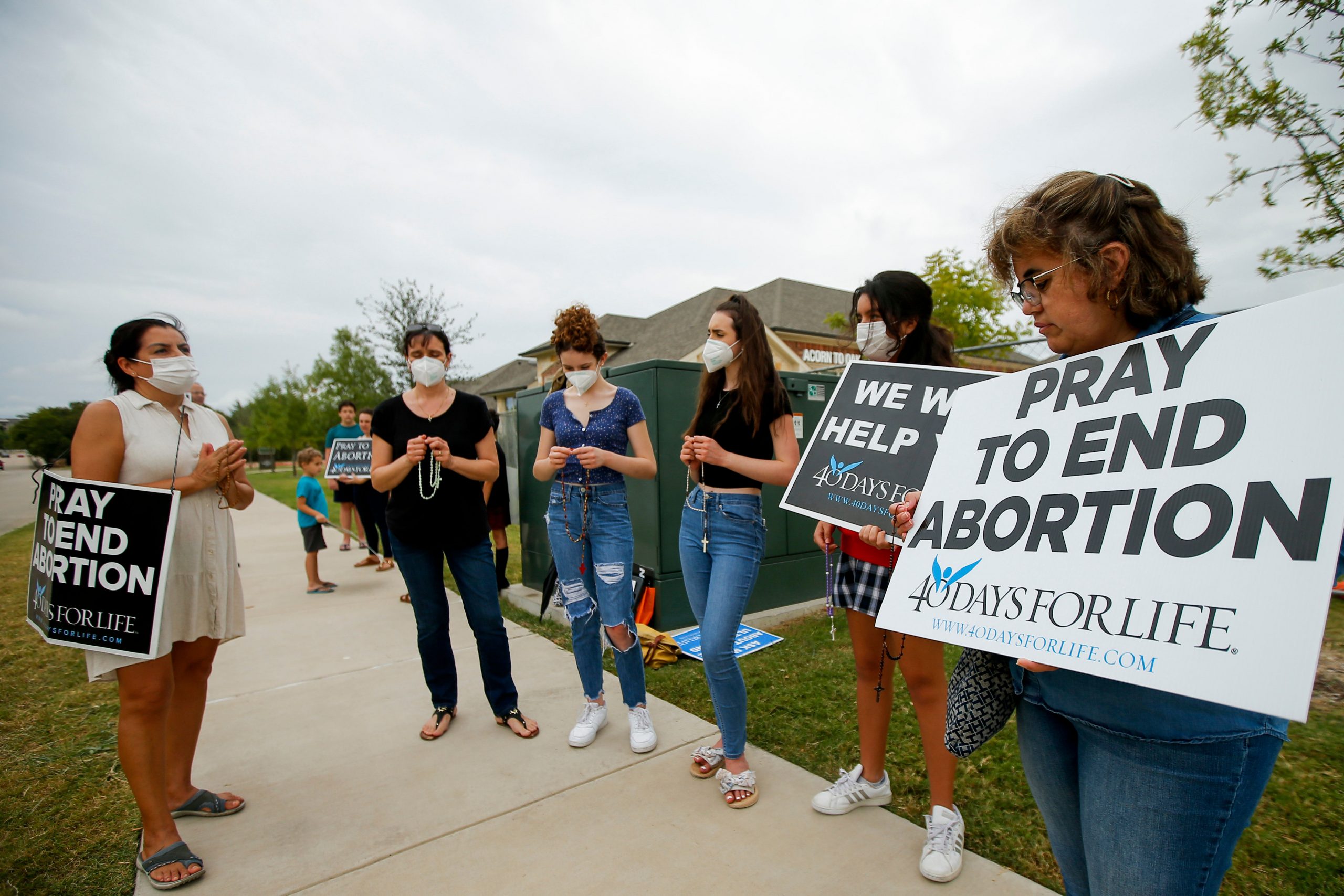On Friday, the same day that the US Supreme Court chose to overturn Roe v Wade, removing legal protections for reproductive health, a series of Republican-led states rushed to outlaw abortion throughout large swaths of the country.
Many of the 13 US states that had previously approved abortion-banning “trigger laws” intended to take effect when the federal right to abortion was repealed acted quickly.
Also read: Roe v Wade: What the leaked SCOTUS draft said vs the opinion
According to the Washington Post, these states are Arkansas, Idaho, Kentucky, Louisiana, North Dakota, Oklahoma, South Dakota, Tennessee, Texas, Utah, and Wyoming. Those statutes either prohibited abortion once the decision was issued, required some type of action from a state official certifying the ruling, or indicated that the ban would take effect days or weeks later.
Missouri’s legislation went into effect immediately. Missouri’s attorney general, Eric Schmitt, certified the ruling six minutes after it was issued by the Supreme Court and tweeted, “Following the SCOTUS ruling overturning Roe v. Wade, Missouri has just become the first in the country to effectively end abortion with our AG opinion signed moments ago. This is a monumental day for the sanctity of life.”
Also read: How overturning Roe v Wade is a win for Justice Clarence Thomas
The act of causing an abortion is classified as a class B crime in Missouri, with no exceptions for rape or incest, and could result in a five- to 15-year jail sentence. According to NPR, it applies to abortion providers, although it’s unclear if someone might be arrested for using abortion-inducing medicines.
As of today, all abortions in South Dakota are illegal “unless there is appropriate and reasonable medical judgment that performance of an abortion is necessary to preserve the life of the pregnant female,” South Dakota’s governor, Kristi Noem, stated with top state lawmakers.
They also stated that a special parliamentary session would be held “to save lives and help mothers impacted by the decision.”
Also read: Why overturning Roe v. Wade will take a financial toll on women
Kentucky’s abortion ban, which allows the practise only to save a pregnant woman’s life or avoid debilitating harm, has also taken effect, according to the Louisville Courier-Journal. Similarly, the state’s trigger law declared that anti-abortion legislation “shall become effective immediately.”
According to the American Civil Liberties Union of Kentucky, the state’s only full-time abortion facility has stopped performing these procedures “as a precaution.” People seeking abortions will have few options nearby, as Illinois and Virginia are the only two of Kentucky’s seven surrounding states that provide mostly unfettered reproductive health care.
Also read: Why LGBTQ community is concerned about Roe v Wade overturning
After Roe v. Wade was reversed, Louisiana legalised abortion. It prohibits most abortions and makes their provision unlawful. According to Nola.com, the rule has no exceptions for rape or incest, regardless of the age of the pregnant person.
When there is a high risk of death or incapacity, the law allows for an exception. At the same time, the statute mandates a doctor to undertake “reasonable” measures to rescue the foetus and mother, according to the website. State legislators have also declared that the procurement of abortion medication via mail or the internet is illegal.
Arkansas’ abortion ban will go into force once the state’s attorney general certifies that Roe v. Wade has been overturned. Almost all abortions are illegal, except when a pregnant woman suffers a life-threatening medical emergency, according to the Arkansas Democrat Gazette.
Also read: What Roe v Wade overturning means
Mississippi’s ban will take effect “within days” and will also require the support of the state attorney general. According to the Washington Post, the abortion ban in North Dakota takes effect 30 days after the state legislative council approves the state attorney general’s certification.
Wyoming and Utah will have prohibitions in place within 30 days of state officials publicly recognising the Supreme Court decision. According to the publication, Idaho’s and Tennessee’s bans will take effect in 30 days.
Also read: Joe Biden says ‘sad day’ as Roe v Wade overturned: Key takeaways from address
Texas’ trigger law, which already prohibits abortion after the sixth week of pregnancy, will go into effect in a matter of weeks. According to the Texas Tribune, the measure prohibits all post-fertilization abortions notwithstanding when necessary to preserve a patient’s life or prevent “substantial impairment of major bodily function.”
Oklahoma, which has the most stringent abortion restrictions in the country, also has a trigger law. According to the Oklahoman, delivering an abortion is a felony punishable by a prison sentence of two to five years.







